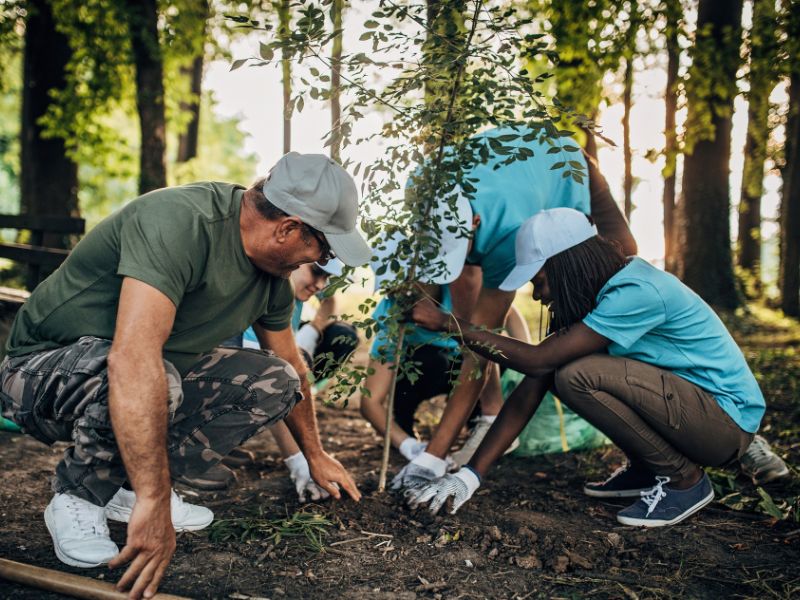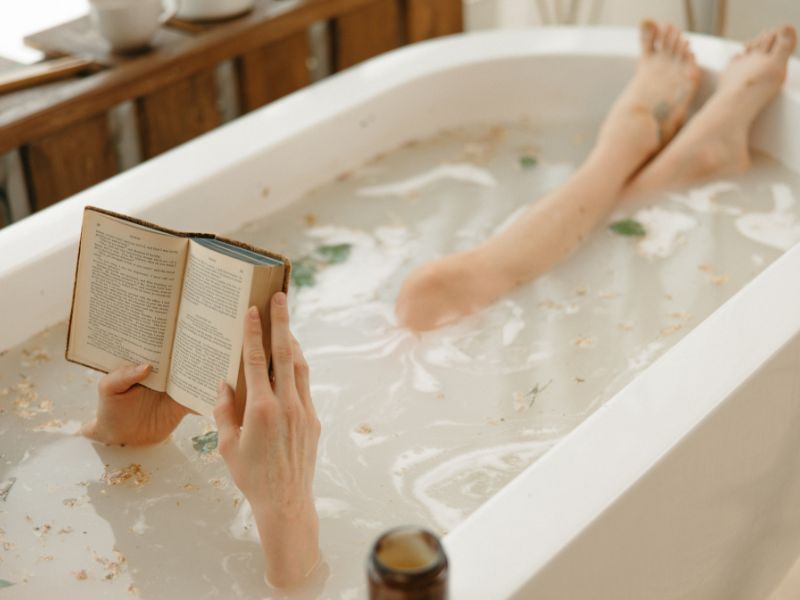Image Copyright: Kaizen Nguyễn / Unsplash
When researching how to stay hydrated, you’ve likely received conflicting information. For this blog post, I looked to the Natural Hydration Council (NHC), a nonprofit organization whose sole mission is to research and communicate the facts about hydrating your body, for some helpful guidelines. Here’s what I’ve learned about how to stay hydrated as summer approaches.
Although researchers agree that water is necessary for all life and that its regular consumption keeps vital systems working properly, how much water we need to drink each day has not been unanimous. Most of us remember the magic “8×8” rule, or “drink eight, eight-ounce glasses of water per day.” Unfortunately, hydration is not that simple. Every person requires different amounts of fluid daily and in different circumstances. According to the NHC, age, gender, size and body composition, exercise, and climate all affect your individual needs for hydration.[1]
Hydration does not only come from drinking water, but also through food and other liquids like juice and tea. Typically, we consume 80% of our hydration through water intake and 20% through food, according to The Food and Nutrition Board.[2] They recommend getting your hydration from both food and water. For women, their daily recommendation is approximately 2.7 liters (91 ounces or about 11 cups) of total water daily, and they encourage men to consume approximately 3.7 liters (125 ounces daily or about 15 cups) of total water daily.
Europe’s hydration consumption guideline authority is the European Food Safety Authority (EFSA), and they recommend just over half a liter less than America does for women, but the same for men (2 liters for adult women (about 8.5 cups) and 2.5 to 2.7 for adult men). Again, it’s important to remember that these are guidelines. Every person is different, and water intake should vary based on age, sex, pregnancy, and breastfeeding status.[3]
The best way to make sure you’re getting the right amount of water is to track what you drink and note how you feel. After paying special attention to this healthy habit, you might feel a better sense of well-being since water contributes to your body’s maintenance, both physically and mentally. Some people report clearer skin and positive, noteworthy physical changes such as better sleep and energy during the day. It is often one of the first healthy habits formed by those pursuing healthier lifestyles because of the significant impact on daily life.
So how do you detect and avoid dehydration?
Our body’s natural defense against dehydration is the initial feeling of thirst or dry mouth and lips. Beyond this, there are a number of symptoms that can include some or all of the following:
- Urine darker than straw-yellow
- Constipation
- Dry eyes
- Headaches
- Physical or mental fatigue
Water and whole foods are the best sources of hydration. Water is the ideal drink to stay hydrated since it doesn’t contain unwanted calories and sugar, unlike sports drinks, juice, and sodas. If you’re not a fan of the plain taste of water, try “spa water” or “infused water,” which is flavored with healthy ingredients such as fruit and herbs. Check out the simple lemon, cucumber, and mint spa water recipe below!
Want more info on healthy hydration? Explore the guidelines provided by the NHC. I’ve used this resource as the predominant authority on the topic because they have neatly curated a wealth of information on hydration.
Lemon, Cucumber, and Mint Infused Water Recipe
Ingredients
- Lemons: 2, sliced
- Cucumber: Half, skinned and sliced into discs
- Fresh mint (Mentha xpiperita or Mentha spicata): About 10 leaves
- Filtered Ice Water: 4 cups
Keep your spa water in a glass pitcher and then serve in a glass (like a mason jar). Avoid plastic since it’s known to leach toxins such as BPA into your water. Plus, mason jars beautify the beverage and allow the drinking experience to feel more luxurious! Since you’re working with fresh ingredients, drink your spa water within 24 hours of making it. Drink up, and enjoy staying hydrated this summer!
Disclosure of Material Connection: I am a guest blogger for American College of Healthcare Sciences, the Institution that publishes this blog. However, all opinions are my own. This blog may contain affiliate links. I am disclosing this in accordance with the Federal Trade Commission’s 16 CFR, Part 255: “Guides Concerning the Use of Endorsements and Testimonials in Advertising.”
This article is for informational purposes only. It is not intended to treat, diagnose, cure, or prevent disease. This article has not been reviewed by the FDA. Always consult with your primary care physician or naturopathic doctor before making any significant changes to your health and wellness routine.
[1] Natural Hydration Council. (2018). Hydration Facts. Retrieved from http://www.naturalhydrationcouncil.org.uk/hydration-facts/
[2] The Food and Nutrition Board. (2004). Dietary reference intakes: Water, potassium, sodium, chloride, and sulfate. Retrieved from http://www.nationalacademies.org/hmd/Reports/2004/Dietary-Reference-Intakes-Water-Potassium-Sodium-Chloride-and-Sulfate.aspx
[3] Center for Disease Control. (2017). Get the facts: Drinking water and intake. Retrieved from https://www.cdc.gov/nutrition/data-statistics/plain-water-the-healthier-choice.html




